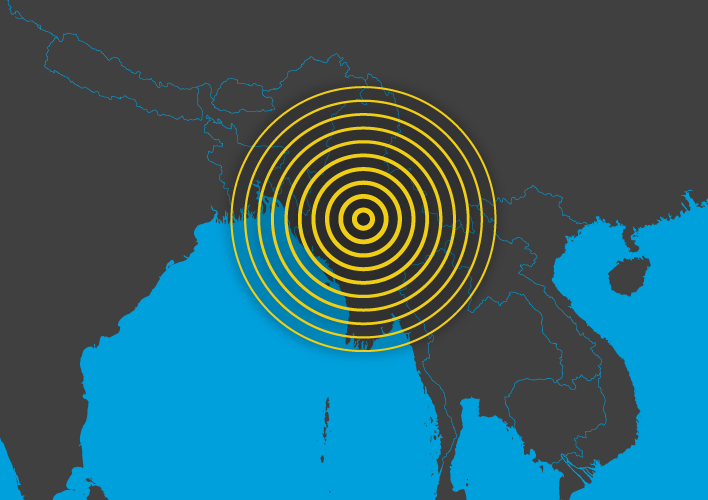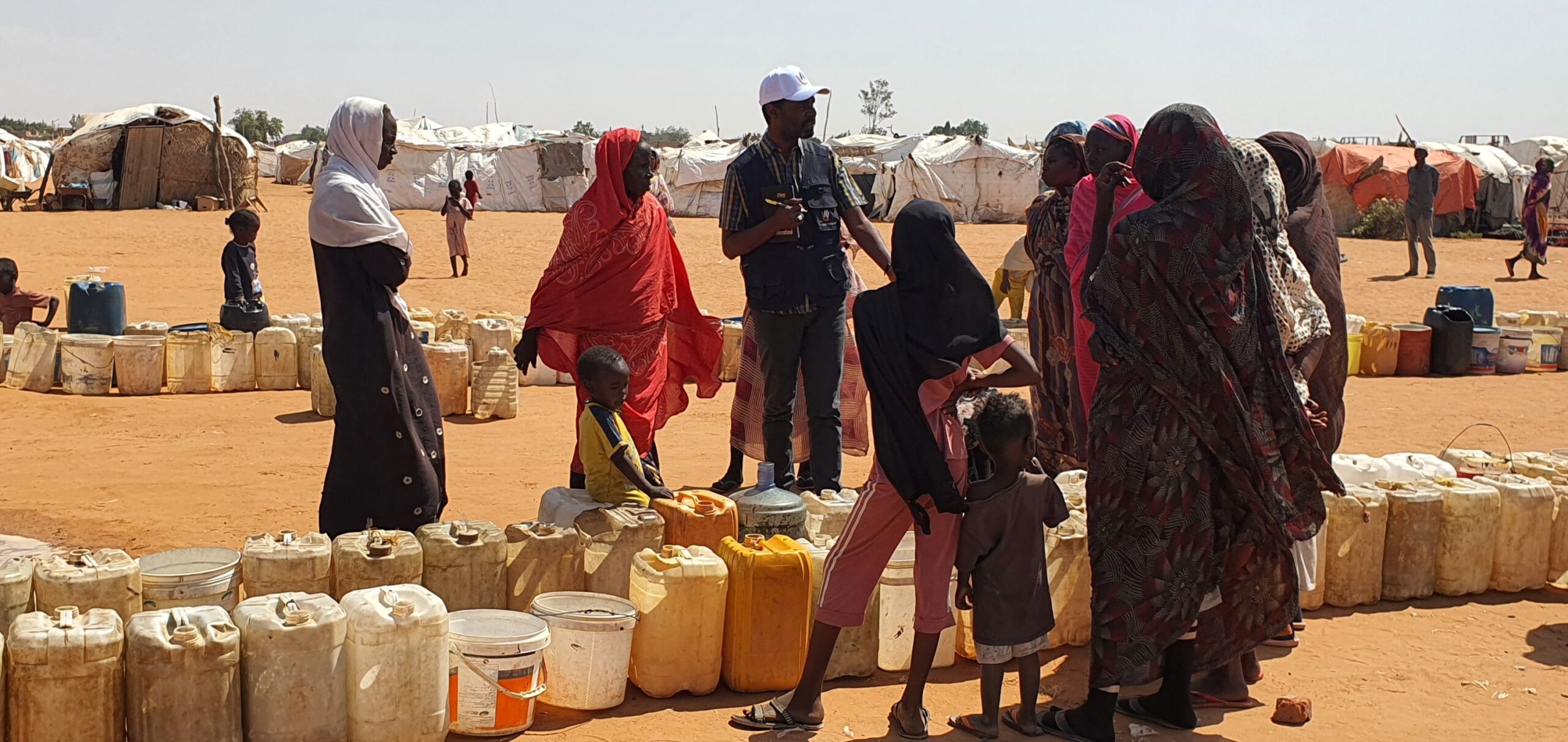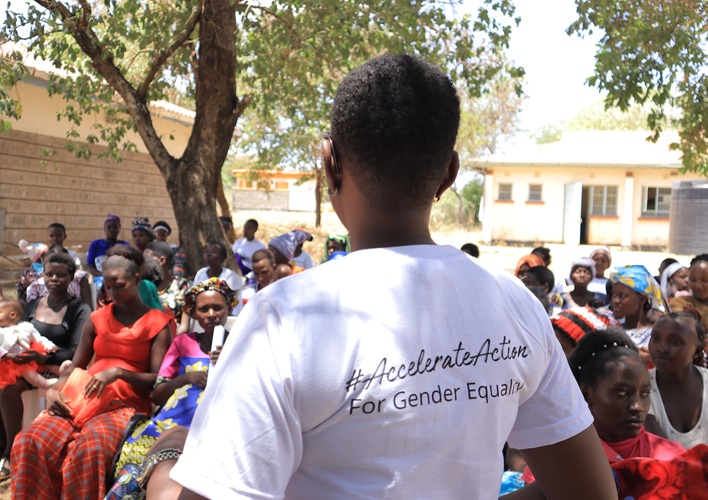A lasting legacy of working together to end global hunger: Farewell to Jim Cornelius
In September 2020, Jim Cornelius will hand over leadership of Canadian Foodgrains Bank to Andy Harrington and move into an advisory role to support Andy through the transition.
“I remember the room where we interviewed Jim. It was a horrible room. There weren’t any windows—it was one of those dreadful closed rooms,” says Rick Fee, who represented Presbyterian World Service & Development (PWS&D) on the board of directors when Jim Cornelius was hired. “But the interview went well, and we all came out of the meeting thinking ‘Yes.’”
Jim began his role as executive director of the Foodgrains Bank on February 1, 1997. By that time, Canadian Foodgrains Bank had been around for 14 years and was established as a credible network of Canadian churches working together to help families facing hunger in developing countries. Yet there was still room to grow, and the funding relationship with the Government of Canada needed to be carefully managed.
We’ve been blessed with Jim’s leadership, faithful service and expertise. He has played a key role in the maturing of the Foodgrains Bank, a uniquely Canadian church-based organization that’s now one of Canada’s leading international emergency food organizations.”
Foodgrains Bank members were also looking to support more long-term development work in addition to the existing emergency food aid and food-for-work programs.
Jim embraced these opportunities, working diligently and deliberately from the very beginning.
“Jim comes across as a humble fellow. He fits in, is a keen observer and is very good at analyzing papers ranging from government documents to reports on the food market in Canada,” says Rick.
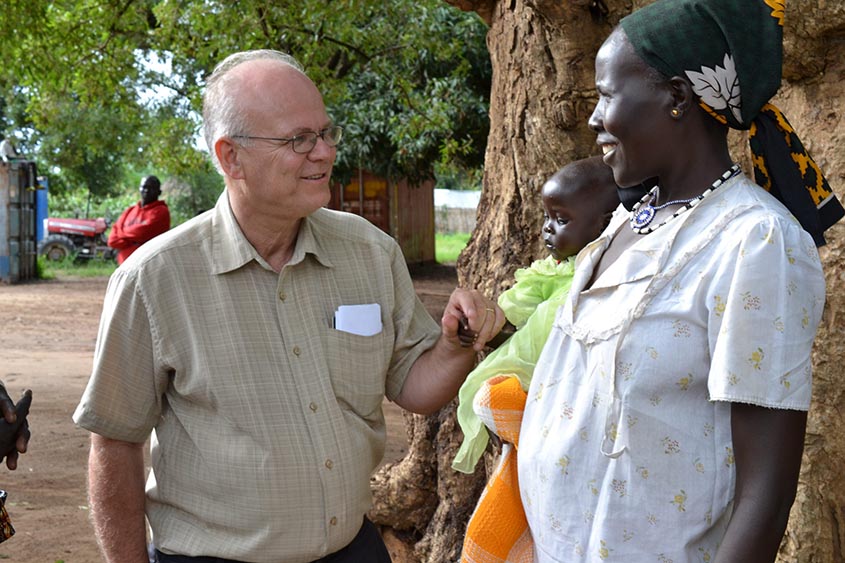
Foodgrains Bank members have been responding to severe hunger caused by conflict in South Sudan for many years. In 2014, Jim met with families in the country who were receiving support through the Foodgrains Bank, including Victoria Loki and her baby Cecilia. (Photo: Amanda Thorsteinsson)
A record that speaks for itself
Jim joined the network after working for many years as a consultant on food aid and development and managing a large Canadian government project in East Africa. He has led the organization with unrelenting passion and expertise. Jim played a key role in many achievements, including:
- Maintaining a strong funding relationship with the Government of Canada.
- Growing the membership of the Foodgrains Bank to include most of the main Christian churches in Canada.
- Ensuring the Foodgrains Bank is well-positioned to respond quickly and effectively to food crises as they emerge.
- Persuading the Canadian government to permit food aid to be purchased from local or regional sources to improve efficiency.
- Expanding efforts to find long-term solutions to hunger.
- Leading the network to the milestone of providing $1 billion of food-related assistance for tens of millions of people in over 70 countries.
“There’s no other organization in Canada that does what the Foodgrains Bank does. It’s an example of Christians working together, and Jim was a major part of this period of history. His work was faith in action, and without making it a cliché, he showed what Christians should be doing in the world,” adds Rick.
“Truly I tell you, whatever you did for one of the least of these brothers and sisters of mine, you did for me.” Matthew 25:40, NIV
Twenty-three years after Jim began as executive director, his legacy and commitment to ending global hunger continues to inspire Foodgrains Bank staff, board directors, members and Canadians alike. He’s highly regarded in Canada’s humanitarian and development sector and was awarded the Lewis Perinbam Innovation and Impact Award in February 2020 for his work leading innovative approaches to ending global hunger.
Jim has led the Foodgrains Bank through multiple global food crises, from the North Korea famine in the late 90s to the Syrian refugee crisis and now increased hunger due to COVID-19.
“The board has a great appreciation for Jim’s commitment and dedication to the values of the Foodgrains Bank and his ability to communicate those values honestly and without equivocation,” adds Ken. “A genuine and humble Christian, Jim has demonstrated that churches working with Canadian farmers, the public and government can demonstrably make a difference in the lives of hungry people around the world.”
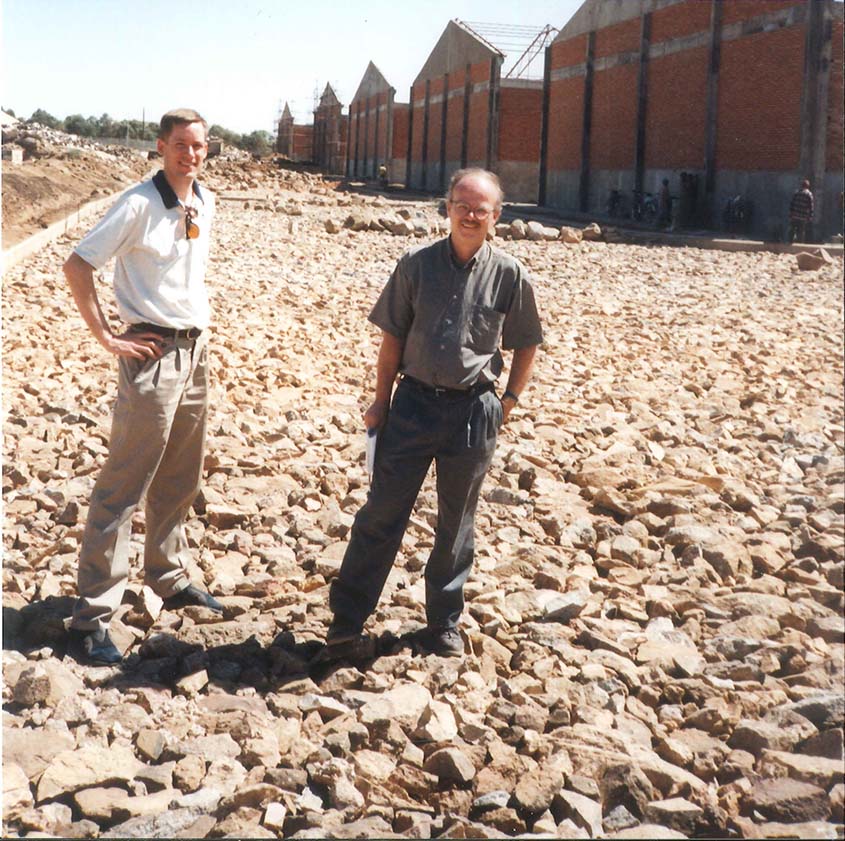
Jim and senior program officer Rob Finlay visit a grain storage project in Eritrea in 1998 (Photo: Submitted)
“Jim embraced Foodgrains Bank supporters wholeheartedly,” says Marion Ausmus, a Saskatchewan grain farmer and current board member. “When we met Jim, he was so humble and down to earth. And he was keenly interested in all the ‘farm talk.’ I remember thinking that we have something to give and this is an organization I want to be associated with. Jim treated every one of us with respect and dignity, and I have seen him treat ‘the least of these’ with the same respect and dignity.”
What is perhaps the most telltale sign of Jim’s legacy is the number of families who have been able to access more food with support from Foodgrains Bank members and their partners. Jim has led the Foodgrains Bank through multiple global food crises, from the North Korea famine in the late 90s to the Syrian refugee crisis and now increased hunger due to COVID-19.
“Jim has ensured that every decision made is made to increase the access to food for families in developing countries,” says Marion. “He’s wholeheartedly answered the call of Jesus to feed the hungry. He’s inspired and encouraged others to answer that call, and when it’s all said and done, fewer families will face hunger thanks to his leadership of this special network.”
“Jim has left the Foodgrains Bank well-positioned to continue responding to hunger needs around the world,” adds Ken. “His legacy will live on for years.”
– Shaylyn McMahon, Communications Coordinator

